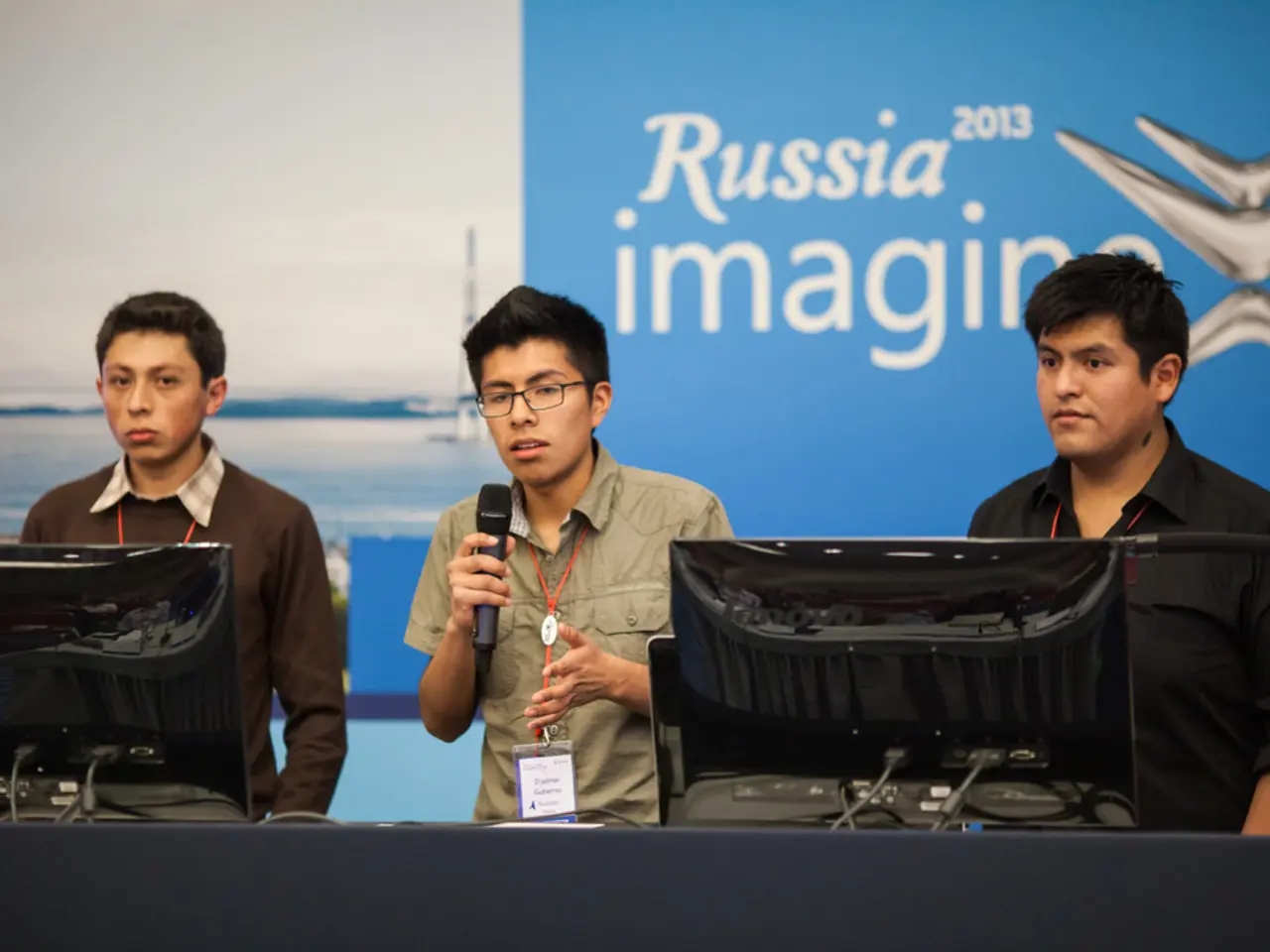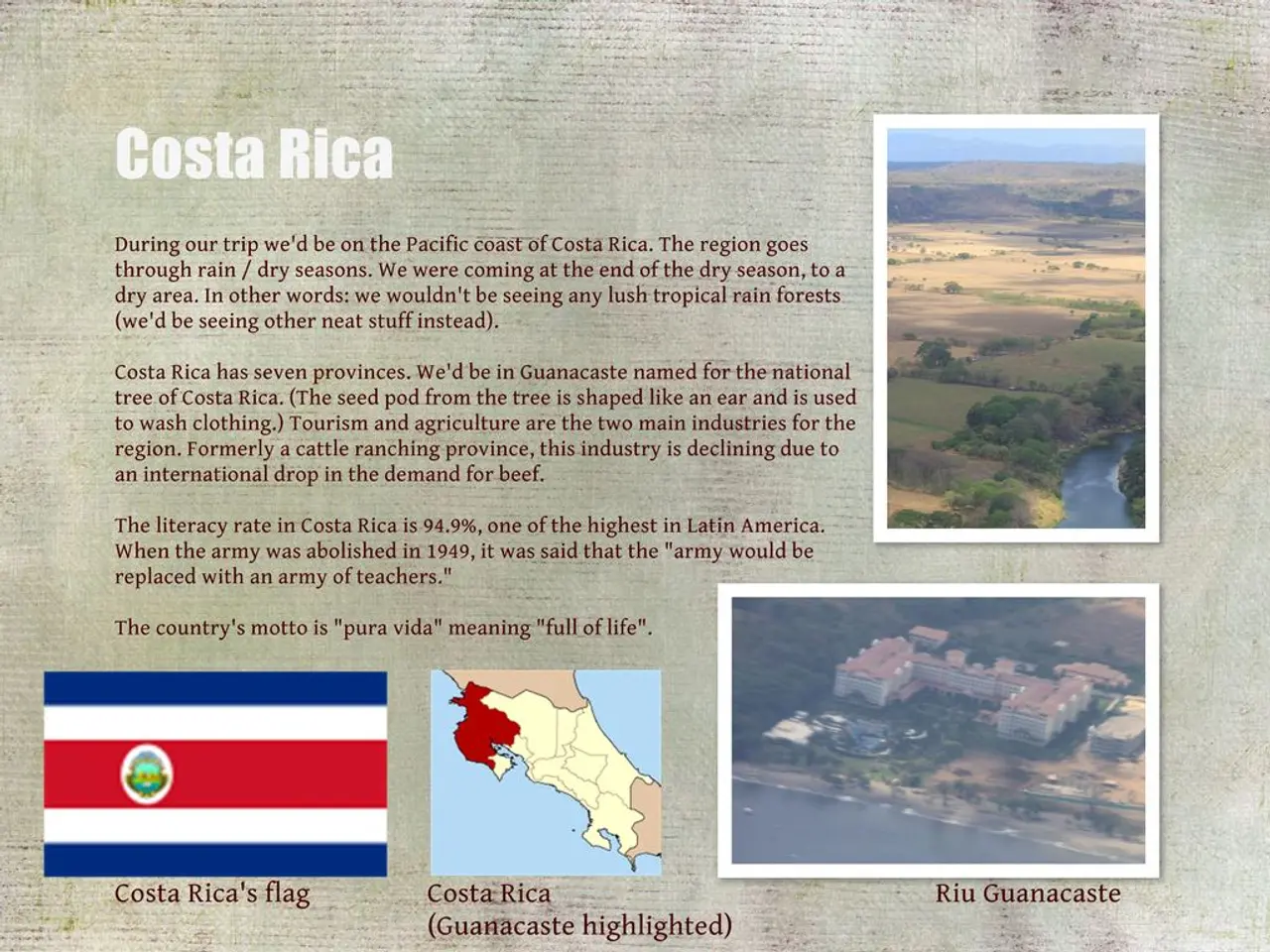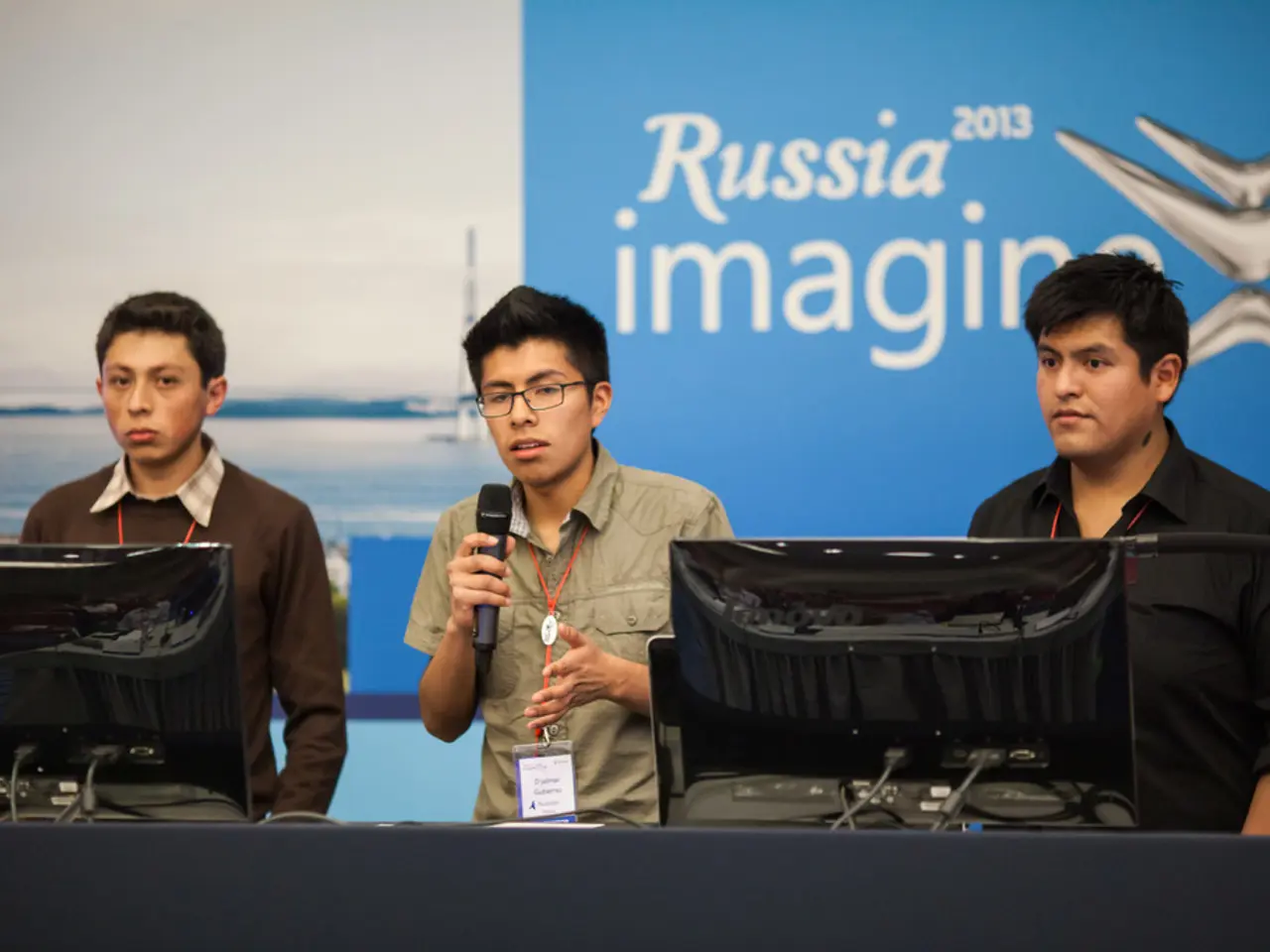Ukraine's President Zelensky refuses decisions made without their involvement, as he engages in discussions with Macron and Starmer. Zelensky reiterates Ukraine's resolve: "We will not relinquish our territory to occupying forces."
On August 15, 2025, a one-on-one summit is scheduled to take place between Donald Trump and Vladimir Putin in Alaska. The meeting, primarily focused on exploring terms for a potential ceasefire and peace deal in the Ukraine conflict, will take place in Anchorage, most likely at the Elmendorf-Richardson military base, starting late morning local time.
The summit will initially see Trump and Putin meeting privately with translators, followed by broader talks with their delegations, including Russian ministers of foreign affairs, defense, and finance, among others. The talks aim to find a resolution to the ongoing conflict in Ukraine, with Putin proposing that Russia maintains control over certain Ukrainian territories (Donetsk, Luhansk, Zaporizhia, Kherson), a stance previously rejected by Ukraine. Trump has emphasised that any final agreement must be between Russia and Ukraine directly.
However, Ukrainian President Volodymyr Zelensky will not be attending the summit. This exclusion has raised concerns among Ukrainian and European officials, who fear that Trump might side with Putin and pressure Zelensky into major concessions without Ukraine’s direct involvement.
The implications of this meeting are significant and contentious. Holding talks without Ukraine’s president risks sidelining Ukraine in decisions about its future territory and sovereignty, potentially undermining its negotiating position and international support. Beyond Ukraine, the summit also serves as a platform to address the generally poor U.S.-Russia relations, which remain strained due to sanctions, the war, and geopolitical tensions. The choice of Alaska as the venue is symbolically important because the U.S. purchased Alaska from Russia in 1867, indicating complex historical ties between the two nations amid current conflicts.
After the meeting, Trump plans to call Zelensky and other European leaders to brief them. However, concerns remain about the balance of influence and whether the meeting will advance a genuine ceasefire or end up pressuring Ukraine into unfavorable terms. Ukrainian President Zelensky has given a negative opinion about the potential outcomes of the meeting, describing any decision that comes out of it as "stillborn".
In conclusion, the Trump-Putin Alaska meeting on August 15 is a critical but controversial diplomatic effort aimed at discussing peace terms for Ukraine without the direct inclusion of Ukrainian leadership, raising concerns over legitimacy and pressure on Ukraine while also touching on the broader context of U.S.-Russia relations.
- The ongoing negotiations between Trump and Putin concerning Ukraine's future are drawing criticism due to the absence of Ukrainian President Volodymyr Zelensky, fueling concerns about potential imbalanced outcomes.
- Beyond the Ukraine conflict, the summit also signals an opportunity for Trump and Putin to address larger political issues, such as the state of U.S.-Russia relations, which have been strained due to historical, geopolitical, and recent war-and-conflicts-related tensions.






